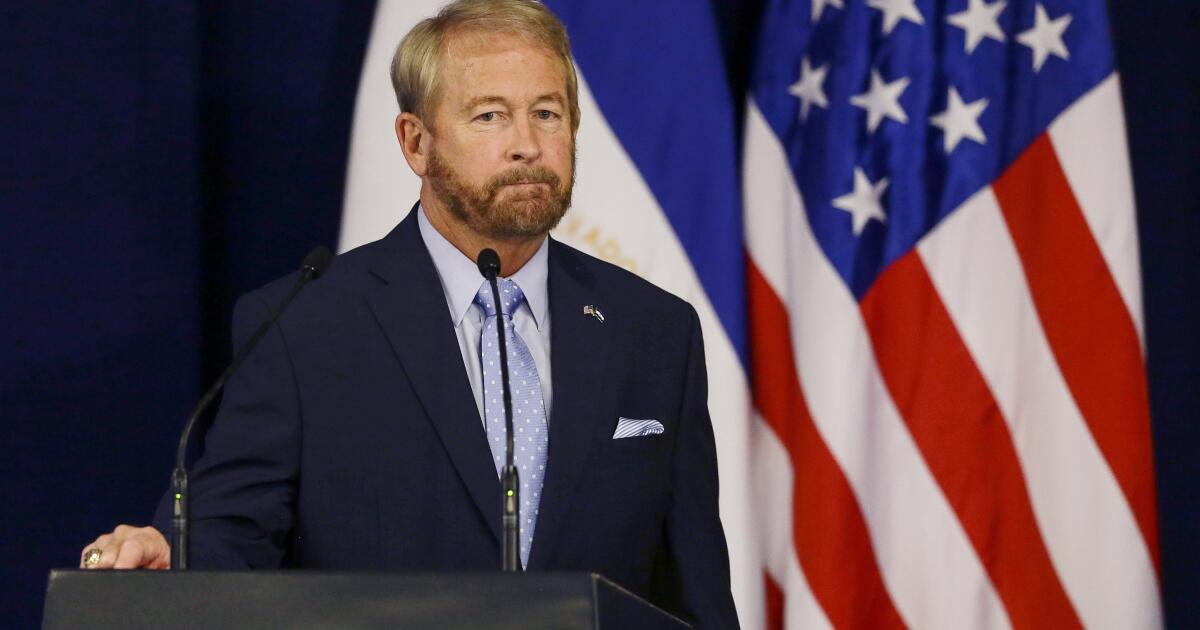It was the best of worlds for Democrats on Friday’s Washington Week with The Atlantic, as the entire panel of liberal journalists defended vice president and Democratic presidential candidate Kamala Harris from (let’s say it altogether) racist and sexist attacks, while ridiculing the debut of Donald Trump’s own VP pick, Sen. JD Vance of Ohio.
Moderator Jeffrey Goldberg was joined by Peter Baker of The New York Times, Eugene Daniels of Politico, Adam Harris of The Atlantic and Asma Khalid of NPR.
Before ridiculing Trump’s vice-presidential pick, Daniels joined the frenzied and discredited spin that Vice President Kamala Harris had never been a “border czar” or in charge of the Biden Administration’s failed policies at the border, even though the press had previously informed us she was. Daniels of Politico (who has recently had problems interpreting words) kicked things off.
Eugene Daniels, Politico: The biggest thing they’re going to do is call her the “border czar,” right? They’re going to say she was in charge of the border and that’s why it’s so bad. [Laughs] She wasn’t the “border czar!” I was on the press call when they explained it, she was dealing with Northern Triangle, immigration issues and why people were leaving the countries. It doesn’t really matter in this time.
Then Daniels played the “racism and sexism” straight-up.
Daniels: “I will also say, something that’s really important is that we’ve already seen a lot of racism and sexism, and that’s going to be a huge part of this campaign. And Republican leadership are talking to them behind the scene, and saying please cut it out there are things that we can talk about here, but calling her a DEI hire, and being sexist, I won’t say the things that they’ve been saying.”
Goldberg: Wait, I want to be clear who’s saying not to do it, and who–”
Daniels: Speaker Mike Johnson has spoken to House Republicans and told them to cut it out….
A bit later, the New York Times White House correspondent seemed to suggest another racist attack on Harris was…calling her a socialist. (Have they even checked her Senate voting record?)
Peter Baker, New York Times: Part of what they’re going to do, they’re not going to say “DEI candidate,” at least some of them won’t. They’re going to say ‘socialist,’ right? And that also has an obvious–
Daniels: –connotation.
Baker: –connotation, right? And they couldn’t really say it very effectively about Joe Biden because he’s well known to the country, been here for 50 years, he’s kind of Scranton Joe, nobody thinks he’s a socialist. She’s a person of color, woman of color, from California, San Francisco.
Asma Khalid, NPR: –radical leftist, they’ll try to say.
Baker: And even though in San Francisco she was thought of as being–
Goldberg: –too right-wing–
Baker: –too right-wing, to the rest of the country, that’s an easy sale to make.
Goldberg: Adam [Harris], let’s talk about it frankly, how big an issue will racism and misogyny be? She’s a twofer, obviously, she’s a woman of color, we’ve never seen this in a presidential campaign. Does she lose support because of who she is, or are the people who are not apt to vote for a woman of color the people who are never going to vote for a Democrat anyway?
After defending Harris, the panel eagerly pivoted to bite into Trump’s VP choice Sen. J.D. Vance and his strangeness. When Daniels talked about the Harris campaign quickly “vetting” her vice presidential choices, Goldberg piped up:
Goldberg: Well, the fastest vetting since J.D. Vance, which we’ll get to. I’m promising that we’re going to get to—” [General laughter]
A few minutes later they did.
Goldberg: What is going on with J.D. Vance? I mean this seems like a troubled pick. [General laughter]
After a brief interlude about George Washington never having children, keyed to a Vance comment suggesting parents should have more of a say than non-parents in American democracy:
Daniels: He’s having awkward interactions at rallies, he’s having kind of weird videos of what’s happening right now that is making him and his folks uncomfortable.
Note: The video really brings out the journalists’ disapproving tone regarding perceived racist attacks on Harris, contrasted with the mocking tone they bring to their treatment of Vance.




















